Find a Colleague
To assist in finding new colleagues in your field of study, we invite you to post your contact information and a short profile about your work.
Steven Arthurs
BioBee USA
Pest Expertise: aphids, cranberry girdler, lepidoptera, nematodes, predatory mites, spider mites, western flower thrips, white grubs
Crops and Commodities: apples, blueberries, cranberries, eggplant, fruit, greenhouse, ornamentals, raspberries, small fruit, strawberries, tomatoes, tree fruit, vegetables
IPM Tools: biological control
Bio: I provide technical support and sales for BioBee USA. We produce and distribute beneficial insects, mites, and nematodes.
Website: www.biobee.us
Email: steven.arthurs@biobee.us
Phone: (509) 930-7123
Collaboration Interest: Crops of interest include ornamentals, strawberries and other small fruits, cannabis, and hops. I can provide materials and additional guidance for research initiatives involving the use of beneficial arthropods and nematodes.
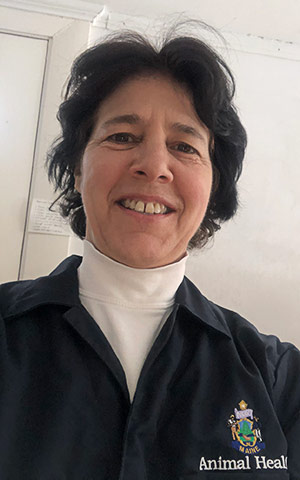
Carol Delaney
Maine Department of Agriculture, Conservation and Forestry – Animal Health Division
Pest Expertise: barberpole worm, livestock reportable diseases, parasites
Crops and Commodities: cervids, dairy, goats, livestock, poultry, sheep, swine
IPM Tools: decision support aids, diagnostic tool, education, IPM priorities & guidelines, regional prevention plans, mobile app
Bio: As Livestock Specialist for the state of Maine Animal and Plant Health Division, I work with farmers and service providers on topics of disease surveillance, biosecurity, emergency preparedness, regulations for marketing, as examples. I am mostly an outreach educator with some regulatory functions thrown in. I support other staff in the Division of Animal Health in Animal Disease Traceability.
My strength is in small ruminant production and, in particular, dairy animals. I am a member and Country Representative for the International Goat Association with contacts in Europe and North and South America. I have volunteered in Mali and El Salvador with small ruminant farmers. Author/Editor of 2012 publication: A Guide to Starting a Commercial Goat Dairy.
Funded with Animal Health colleague (Carolyn Hurwitz, DVM) with Northeast SARE, 2020–2022 Partnership Grant “Biosecurity Preparedness, Infectious Disease Prevention and Farmer Training on Northern New England Swine Farms.”
I have an M.S. from Cornell University in Ruminant Nutrition and a B.S. from UVM in Animal Science and Dairy Technology (milk product processing).
Website: www.maine.gov/dacf/ahw/animal_health/index.shtml
Email: carol.delaney@maine.gov
Phone: (207) 215-4968
Collaboration Interest: Topics of disease surveillance, biosecurity, emergency preparedness, regulations for marketing and a good investigation into recordkeeping systems that farmers can easily use for health records and identification records as well as for production and goal monitoring.
Time Frame for Collaboration: Flexible
Location of Collaborators: Northeast states
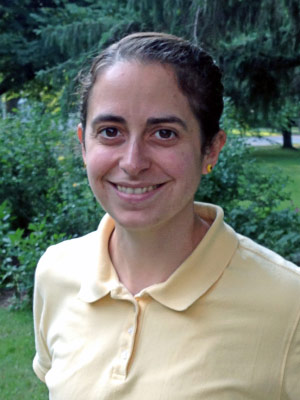
Amara Dunn
New York State IPM Program at Cornell University
Areas of Expertise: bacterial diseases, fungus, insects, weeds
Crops and Commodities: Christmas trees, fruit, greenhouse, livestock, ornamentals, small fruit, small grain, tree fruit, turf, vegetables
IPM Tools: biological control, education, habitat modification
Bio: Amara received her MS and PhD in plant pathology at Cornell University, with a focus on vegetable diseases. After completing a post-doctoral position in plant pathology at Cornell and teaching in the Biology Department at Hobart and William Smith Colleges in Geneva, NY, she began her current position as Biocontrol Specialist with the New York State Integrated Pest Management Program in June 2017. Her responsibilities are primarily extension (with a little applied research), and her goal is to help New Yorkers use biocontrol as part of an IPM strategy, both in commercial agriculture, and in all of the places where people live, work, learn, and play.
Website: nysipm.cornell.edu/environment/biocontrol/
Email: arc55@cornell.edu
Phone: (315) 787-2206
Collaboration Interest: My current interests include conservation biocontrol through planting habitat that supports natural enemies, and integrating use of microbial biocontrol agents (biopesticides) into IPM. I am not limited to specific commodities or types of pests (although clearly I don’t have time to work on all of them at once!). I am also very interested in using active learning strategies in extension education.
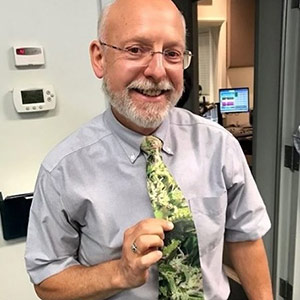
Gary Fish
Maine Department of Agriculture, Conservation and Forestry
Pest Expertise: ants, aphids, apple maggot, apple scab, browntail moth, cockroaches, colony collapse disorder, Colorado potato beetle, conifer and Christmas tree nursery pests, European swallow-wort, fire blight (Erwinia amylovora), flea beetles, fly speck, fungus, herbicide resistant weeds, honey bee mite, insects, invasive terrestrial plants, lepidoptera, mold, mummy berry disease, nematodes, plum curculio, potato leafhopper, powdery mildew, predatory mites, rodents, scale, septoria leaf spot, slugs, small fruit insects, weeds & diseases, small hive beetle, sooty blotch, Sparganothis fruitworm, spider mites, spotted wing drosophila, striped cucumber beetle, swallow-wort, Swede midge, tarnished plant bug, ticks, varroa mite, weeds, western flower thrips, white grubs, wildlife, wireworm
Crops and Commodities: apples, blueberries, Christmas trees, conifers, flowers, fruit, grapes, hemp, honey bees, ornamentals, pollinators, potatoes, raspberries, roses, small fruit, sunflowers, tree fruit, turf, vegetables
IPM Tools: biological control, cultural control, decision support aids, diagnostic tool, education, eradication, exclusion/avoidance, forecasting, habitat modification, host resistance, IPM priorities & guidelines, mechanical control, mobile app, modeling, monitoring, pesticides, risk assessment
Bio:
Title: Maine State Horticulturist
Degree: B.S. Forest and Wildlife Management from the University of Maine, College of Forest Resources in 1982, Master of Policy, Planning, and Management 2023.
Experience: State Horticulturist since 2015. Manager, Pesticide Programs for the Board of Pesticides Control for 28 years. Off and on practicing Licensed Professional Forester since 1985, Kents Hill Forestry Services. Former chair of the Arborist Board. Worked as a horticulturist for ChemLawn Services Corporation for 5 years, 1983–1988.
Personal: Grew up in Farmington, Maine. An entomologist from birth and was inspired to love plants by my mother, who always grew beautiful roses and rock gardens. I am also a landscape and nature photographer (Phish Photography on Etsy).
Website: www.maine.gov/dacf/php/index.shtml
Email: gary.fish@maine.gov
Phone: (207) 287-7545
Collaboration Interest: My primary focus of late is invasive species management. Especially invasive terrestrial plants, but also insects and pathogens.
Location of Collaborators: Northeastern U.S.

Matt Frye
New York State IPM Program at Cornell University
Pest Expertise: ants, bed bugs, brown marmorated stink bug, cockroaches, rodents, ticks
Bio: I provide education and conduct research on pests that occur in and around buildings where people live, work, learn and play. My goal is to help people prevent issues with pests such as rodents, bed bugs, ticks, cockroaches, and indoor flies; or to provide management recommendations for existing problems.
Website: nysipm.cornell.edu/people/matt-frye/
Collaboration Interest: I am interested in projects that will improve the efficacy of structural pest management and increase adoption of IPM practices by industry. This may include research and demonstration projects on a variety of structural pest issues, as well as extension work to share new resources, techniques and training programs.
Jeff Garnas
University of New Hampshire
Areas of Expertise: fungi, forest insects and pathogens
IPM Tools: biological control, host resistance, modeling
Bio: I am a population and community ecologist and have focused on invasive insects and pathogens in forest systems. I am interested in understanding the evolutionary ecology of invasion, including genetic consequences of population bottlenecks and admixture on adaptive evolution in invaded ecosystems. I currently work with a number of systems including the emerald ash borer, the southern pine beetle, and beech bark disease, among others.
Website: mypages.unh.edu/garnaslab/
Email: jeff.garnas@unh.edu
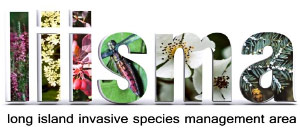
Luke Gervase
Long Island Invasive Species Management Area
Pest Expertise: European swallow-wort, insects, invasive terrestrial plants, small fruit insects, weeds & diseases, swallow-wort, ticks, various
Crops and Commodities: ornamentals, roses
IPM Tools: biological control, cultural control, decision support aids, diagnostic tool, education, eradication, exclusion/avoidance, forecasting, habitat modification, host resistance, mechanical control, mobile app, monitoring, pesticides
Bio: We are a voluntary partnership of many organizations from the geographic area that includes Staten Island (Richmond County), Long Island (Kings [Brooklyn], Queens, Nassau and Suffolk counties), and eleven additional coastal plain islands. We are one of eight PRISMs (Partnership for Regional Invasive Species Management) that cover all of New York State. We believe we can help conserve LIISMA’s biodiversity, wildlife habitat, recreation resources, scenic quality, and crop production, while protecting human health and safety, by facilitating cooperation and coordination among land owners and managers to reduce the threat of human-introduced invasive species. We also believe we can reduce the costs of invasive species management by preventing and eradicating new invasive species infestations before they become established.
Collaboration Interest:
- Build partnerships and facilitate coordination among stakeholders.
- Prevent new invasive species introductions.
- Gather new information about invasive species through field work and research.
- Train agency staff and volunteers in identification, prevention, mapping, monitoring, and management protocols.
- Rapidly detect and respond to new invaders.
- Help manage established invasive species to protect and restore target resources.
- Monitor changes and evaluate results of management efforts.
- Elevate the profile of the invasive species issue through education and outreach with an emphasis on prevention measures and Best Management Practices.
- Establish new funding, policy, and management support at the State, County and Town levels.
Website: www.liisma.org
Email: liismaprism@gmail.com
Phone: (631) 560-9945
Pierre Girod
Rutgers University
Pest Expertise: brown marmorated stink bug (BMSB)
Crops and Commodities: apples, beans, corn, fruit, nectarines, ornamentals, peaches, pears, peppers, soybeans, stone fruit, tomatoes, tree fruit, vegetables
IPM Tools: biological control, monitoring
Bio: The main topic of my research as a postdoc researcher is to investigate the distribution of Trissolcus japonicus (Hym.: Scelionidae) and to evaluate its potential as a biological control agent against Halyomorpha halys (Het.: Pentatomidae) in the eastern USA. Field collection, monitoring, host target assessments in the laboratory and various habitats, and population genetic diversity analyses. PhD at the University of Neuchâtel & CABI, Switzerland. Classical biological control of Drosophila suzukii Matsumura (Diptera: Drosophilidae) with Ganaspis cf. brasiliensis (Hym.: Figitidae).
Website: entomology.rutgers.edu/personnel/faculty.html
Email: pierre.girod@rutgers.edu
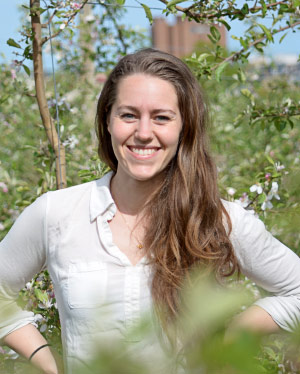
Heather Grab
Cornell University
Pest Expertise: insects; small fruit insects, weeds & diseases; tarnished plant bug
Crops and Commodities: pollinators, small fruit, strawberries, hemp
IPM Tools: biological control, decision support aids, education, forecasting, habitat modification, modeling, monitoring
Bio: I am an applied entomologist using spatial analysis and quantitative tools to understand why communities of pest and beneficial insects vary across farms and to evaluate strategies for integrated pest and pollinator management. My prior work focused on strategies to control tarnished plant bug in strawberry production systems in NYS while also supporting pollination services from native bees using field-edge wildflower plantings. As a member of the Hemp Team at Cornell, I now work with students and colleagues to monitor emerging pests of hemp and develop integrated pest management strategies for fiber, grain, and cannabinoid hemp production systems.
Website: cals.cornell.edu/heather-grab
Email: heathergrab@cornell.edu
Collaboration Interest: I’m excited to collaborate on projects in the area of integrated pest and pollinator management and on projects where I can contribute spatial and quantitative skills.

Deborah Grantham
Northeastern IPM Center, Cornell University
Expertise: education, communication, partnership building
IPM Tools: collaboration with state IPM programs in Northeast, other partners in the Northeast
Bio: My education and training is in geology and geophysics. I have spent most of my career working in water resources and other environmental resources management, particularly non-formal education. Some of that experience is with invasive species. Currently, I am Director of the Northeastern IPM Center, based at Cornell University.
Collaboration Interest: The Northeastern IPM Center assists and participates in education, training, technical assistance, communications campaigns, and partnership building throughout the Northeast and across the country. The Center also offers competitive funding for IPM researchers, managers, educators, and practitioners/growers in the Northeast.
Website: www.northeastipm.org
Email: dgg3@cornell.edu
Phone: (607) 255-8879
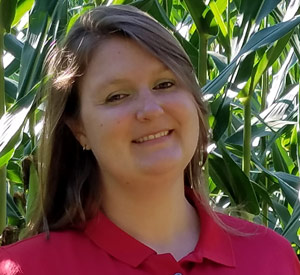
Kelly Hamby
University of Maryland
Pest Expertise: insects, slugs, spotted wing drosophila, corn earworm
Crops and Commodities: blueberries, corn (field), corn (sweet), raspberries, soybeans
IPM Tools: biological control, cultural control, education, habitat modification, IPM priorities & guidelines, monitoring, pesticides
Bio: Kelly is an Associate Professor and Extension Specialist in the Department of Entomology. Her research and extension program addresses invasive and emerging insect pest issues, evaluating and optimizing pest management programs, and development of sustainable alternative management tactics, in Mid Atlantic small fruit, sweet corn, and grain crop systems. She is also interested in understanding insect interactions with free-living microorganisms (yeasts and fruit rots) to improve pest management. She received her B.S. in Environmental Toxicology, M.S. in Entomology, and Ph.D. in Entomology at the University of California Davis.
Collaboration Interest: I am currently leading an SCRI team focused on corn earworm management in sweet corn that welcomes anyone who is interested in connecting with the team (cewipm.org). My lab also works a lot with spotted wing drosophila in small fruit, slugs in soybeans, non-target effects of pesticides in field crops, and insect interactions with yeasts and fruit rot fungi.
Website: hambylab.weebly.com
Email: kahamby@umd.edu
Phone: (301) 314-1068
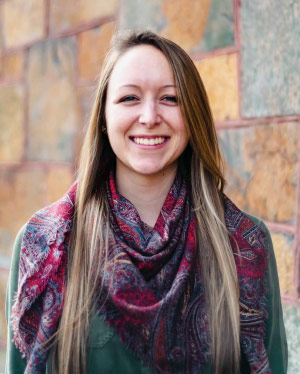
Erica Holm
Mass Audubon
Pest Expertise: ants, bacterial diseases, blight (fire), colony collapse disorder, conifer and Christmas tree nursery pests, fungus, herbicide resistant weeds, insects, invasive terrestrial plants, lepidoptera, mold, nematodes, parasites, rodents, scale, ticks, various, weeds, wildlife, urban IPM, urban forest pests
Crops and Commodities: Christmas trees, conifers, honey bees, ornamentals, peaches, pears, pollinators, raspberries, roses, tree fruit, turf, vegetables, urban vegetation, urban wildlife
IPM Tools: biological control, cultural control, decision support aids, diagnostic tool, education, eradication, exclusion/avoidance, forecasting, habitat modification, host resistance, IPM priorities & guidelines, mechanical control, mobile app, modeling, monitoring, pesticides, urban IPM
Bio: I am an urban ecologist currently working with ecological management in Massachusetts cities including invasive plant species management, rodenticides and rodent IPM, urban forest pests and pathology, and tree nursery IPM.
Website: www.linkedin.com/in/erica-holm/
Email: eholm@massaudubon.org
Phone: (617) 620-7683
Collaboration Interest: Any urban ecology projects in Massachusetts, or where MA cities could collaborate in existing IPM projects.
Location of Collaborators: Massachusetts
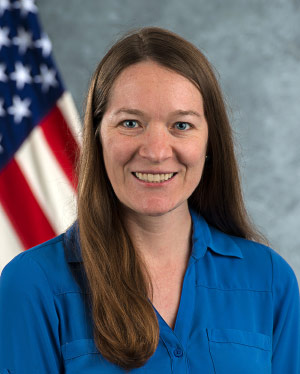
Ashley Kennedy
Delaware Division of Fish & Wildlife, Mosquito Control Section
Expertise: ticks
IPM Tools: education
Bio: I run Delaware’s tick and tick-borne pathogen surveillance program.
Collaboration Interest: Looking forward to any kind of collaboration relating to ticks that occur in Delaware (especially Amblyomma americanum, Ixodes scapularis, Dermacentor variabilis, Amblyomma maculatum, Haemaphysalis longicornis); also interested in soft ticks (e.g., Carios kelleyi).
Email: ashley.kennedy@delaware.gov
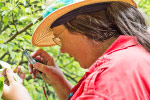
Kathleen Leahy
Polaris Orchard Management
Pest Expertise: aphids, apple leaf curling midge, apple maggot, apple scab, bacterial diseases, brown marmorated stink bug (BMSB), European brown rot, fire blight, fly speck, obliquebanded leafroller, oriental fruit moth, parasites, plum curculio, potato leafhopper, powdery mildew, predatory mites, scale, small fruit insects, weeds & diseases, sooty blotch, spider mites, spotted wing drosophila, tarnished plant bug, winter moth
Crops and Commodities: apples, blueberries, cherries, fruit, grapes, nectarines, peaches, pears, raspberries, small fruit, stone fruit, tree fruit
IPM Tools: biological control, cultural control, decision support aids, modeling, monitoring, pesticides
Bio: IPM tree fruit consultant working directly with 20+ growers in Massachusetts, New Hampshire, Vermont, and eastern New York since 1993. Worked as a field technician for UMass Apple IPM Program for 10 years before that. MS in Plant, Soil and Insect Sciences from UMass.
Collaboration Interest: Open to a wide variety of collaborations — would like to see more cooperation between consultants and Extension/research workers. Advanced IPM; invasives; multi-pronged management approaches... all that stuff.
Website: polarisipm.com
Email: polaris2@rcn.com
Phone: (413) 374-7669
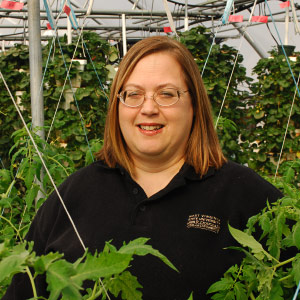
Barbara Liedl
West Virginia State University
Pest Expertise: aphids, early blight, late blight, septoria leaf spot, spider mites
Crops and Commodities: flowers, greenhouse, ornamentals, peppers, strawberries, tomatoes, vegetables
IPM Tools: biological control, cultural control, education, host resistance, IPM priorities & guidelines, monitoring
Email: liedlbe@wvstateu.edu
Phone: (304) 204-4037

Scott Lucas
City of Columbus, Ohio
Pest Expertise: colony collapse disorder, herbicide resistant weeds, invasive terrestrial plants, rodents, weeds, wildlife
Crops and Commodities: conifers, flowers, honey bees, pollinators, sunflowers
IPM Tools: cultural control, decision support aids, education, eradication, IPM priorities & guidelines, mechanical control, mobile app, pesticides
Bio: Working for the City of Columbus, Ohio, as the Infrastructure Operations Coordinator. Oversees vegetation management and other roadside maintenance. Certified Arborist, licensed pesticide applicator and chair of AKR20 Standing Committee on Roadside Maintenance Operations.
Email: SELucas@columbus.gov
Phone: (614) 645-7458
Collaboration Interest: I would like to collaborate on any projects involving IPM on roadside vegetation both at the City of Columbus and with the Transportation Research Board. AKR20 is looking for friends and committee members to work together with on NCHRP projects and synthesis.
Ellen Mallory
University of Maine
Expertise: weeds
Crops and Commodities: small grain
IPM Tools: cultural control, mechanical control
Bio: My research focuses on how to manage biologically based fertility systems to supply crop nutrient needs and improve soil health and productivity. Prior work evaluated organic fertility strategies for bread wheat yield and quality, compost as a fertility source for lowbush blueberry, and soil amendment impacts on soil carbon and nitrogen dynamics, soil quality, and potato yield stability. My current research (and extension) program aims to help farmers and end-users expand the local food, beverage, and feed grain sector in New England. Projects include green manure management, weed management, variety evaluations for small grains, pulses, and oilseeds, and crop modeling.
Collaboration Interest: Organic small grain production
Website: umaine.edu/foodandagriculture/mallory2/
Email: ellen.mallory@maine.edu
Phone: (207) 581-2942
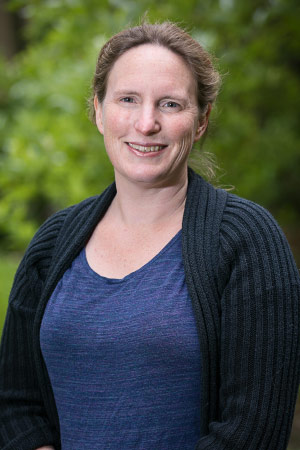
Caroline Marschner
Cornell University
Pest Expertise: insects, invasive species, invasive terrestrial plants, various, weeds
IPM Tools: biological control, cultural control, decision support aids, diagnostic tool, education, forecasting, modeling, monitoring
Bio: I work on all taxa of invasive species. At present, my work focuses on forest pests and agricultural weeds. I am the program manager for the NYS Hemlock Initiative, and for the NY Agricultural ID Network and Multistate Weed Emergence projects.
Collaboration Interest: I am interested in invasive species programs, especially as relating to agricultural weeds, forest pests, or climate change.
Website: weedecology.css.cornell.edu/about/people.php?id=38
Email: cam369@cornell.edu
Michael Millican
New York City Department of Healthy and Mental Hygiene, Healthy Homes Program
Pest Expertise: ants, Asian tiger mosquito, bed bugs, cockroaches, colony collapse disorder, rodents
IPM Tools: biological control, cultural control, decision support aids, diagnostic tools, education, eradication, exclusion/avoidance, habitat modification, IPM priorities & guidelines, mechanical control, modeling, monitoring, pesticides, pest prevention by design
Bio: Urban IPM Specialist working on IPM interventions in the homes of children with Asthma. Previously developed municipal and county wide IPM programs in California. Currently providing training to architects, developers and construction managers on pest prevention during all stages of the building life cycle, from design and construction, to operations and maintenance and retrofit. Focused on combining building upgrades related to energy and water efficiency with health upgrades focused on pest prevention and IPM best practices.
Collaboration Interest: I am interested in working on projects focused on pest prevention by design, IPM interventions in the homes of children with asthma, and pest management in cultural institutions and municipalities.
Website: www1.nyc.gov/site/doh/health/health-topics/pests-and-pesticides-building-owners.page
Email: mmillican@health.nyc.gov
Phone: (646) 632-6607
Michael A. Monzon
Rutgers Cooperative Extension
Pest Expertise: insects, parasites, beetles, true flies (blow flies, house flies)
Crops and Commodities: forage, greenhouse, livestock, pollinators
IPM Tools: biological control, cultural control, education, forecasting, IPM priorities & guidelines, modeling
Bio: I use forensic entomology, archaeology and other disciplines to study evolving pest and disease pressure.
Collaboration Interest: I am interested in a wide-range of collaborations but especially projects that are interested in incorporating historical perspectives on insect biodiversity.
Location of Collaborators: Northeastern United States, Northern Europe, Arctic regions
Email: mmonzon@njaes.rutgers.edu
Virginia Moore
Cornell University
Pest Expertise: insects, vetch bruchid
Crops and Commodities: alfalfa, cover crops, dairy, forage, sweet corn
IPM Tools: host resistance
Bio: Virginia’s research focus is on plant breeding for sustainable cropping systems. She takes multiple approaches, including breeding for organic systems, for intercropping and polyculture systems, for pest resistance, and for ecosystem services. She works in a range of species, including cover crops, perennial forages, bioenergy crops, and hemp.
Collaboration Interest: I am currently breeding hairy vetch as a cover crop, and vetch bruchid is a major seed pest in the species. I am screening and selecting for vetch bruchid resistance and am interested in identifying a collaborator to explore other IPM strategies for this pest.
Website: cals.cornell.edu/virginia-moore
Email: vm377@cornell.edu
Jaimin Patel
Lighting Research Center, Rensselaer Polytechnic Institution
Pest Expertise: apple scab, early blight, fire blight, late blight, downy mildew, fungi, insects, lepidoptera, powdery mildew, septoria leaf spot, small fruit insects, weeds & diseases, weeds, white rust
Crops and Commodities: alfalfa, apples, beans, blueberries, brassicas, butternut squash, corn, cucurbits, eggplant, flowers, forage, fruit, grapes, grapevine, greenhouse, lima beans, onions, ornamentals, potatoes, raspberries, roses, small fruit, small grain, soybeans, spinach, strawberries, sunflowers, tomatoes, turf, vegetables
IPM Tools: education, eradication, exclusion/avoidance, host resistance, IPM priorities & guidelines, pesticides, UV and visible light-based control
Bio: Jaimin Patel is a plant pathology research scientist at the Lighting Research Center of Rensselaer Polytechnic Institute. Dr. Patel is the author of more than 45 scientific articles and serves as the senior editor of Plant Health Progress, a peer-reviewed journal of applied plant health. During his career, he has studied diseases caused by several fungi and oomycetes, and developed a variety of disease management strategies for vegetable crops, small-grains, oil-seed crops, and ornamental crops. Currently, his research is focused on light-based pest management for a wide range of crops.
Collaboration Interest: The Northeastern IPM Center assists and participates in education, training, technical assistance, communications campaigns, and partnership building throughout the Northeast and across the country. The Center also offers competitive funding for IPM researchers, managers, educators, and practitioners/growers in the Northeast.
Website: www.lrc.rpi.edu/programs/plants/plants_home.html
Email: patelj6@rpi.edu

Richard J. Pollack
Harvard University (Department of Environmental Health and Safety); IdentifyUS LLC
Pest Expertise: bed bugs, birds, biting mites, black flies, cockroaches, lice, mosquitoes, parasites, rodents, ticks, vector ecology and management
IPM Tools: construction review, diagnostic tool, education, exclusion/avoidance, habitat modification, identification, IPM priorities & guidelines, mechanical control, monitoring, risk assessment
Bio: Public health zoologist focused on arthropods, rodents, and parasites. More than four decades of academic research on mosquito-and tick-borne disease issues in the U.S. and abroad. I currently serve as: a public health officer for Harvard University, a commissioner of a MA mosquito control district, and am the chief scientific officer in a consulting venture serving the industrial, academic, medical, legal, and construction arenas as well as for members of the public.
Website: www.linkedin.com/in/richard-pollack-6818997/
Website: identify.us.com
Email: richard_pollack@harvard.edu
Email: rich@identify.us.com
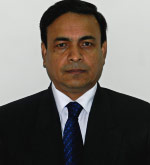
Mahfuz Rahman
West Virginia University
Pest Expertise: apple scab, black root rot, early blight, late blight, fire blight, fungi, mummy berry disease, peach scab
Crops and Commodities: blueberries, cucurbits, eggplant, grapevine, peaches, pears, raspberries, small fruit, strawberries
IPM Tools: biological control, cultural control, decision support aids, diagnostic tool, education, exclusion/avoidance, forecasting, host resistance, IPM priorities & guidelines
Education:
PhD Plant Pathology, Simon Fraser University, Burnaby, BC, Canada
MS Plant Pathology, Oregon State University, Corvallis, OR, USA
Professional Experience:
Extension Associate Professor (5/2017–present), West Virginia University
Program focus: Integrated disease management of fruits and vegetables with emphasis on strawberries, tomatoes, and cucurbits. Specific responsibilities are:
- Disease diagnosis at WVU Plant Diagnostic Clinic and sending recommendations to growers
- Development of IPM based plant disease management tools for sustainable crop production
- Research and teaching on “Integrated Pest Management of Vegetables and Small Fruits”
- Development and implementation of decision support system for growers and investigation on fungicide efficacy in growers field and research farms
Extension Assistant Professor (6/2011–5/2017), West Virginia University
- My major research focus is sustainable management of diseases in small fruits and vegetables. I strongly believe plant disease management should be a package of judiciously arranged options encompassing host resistance, use of disease free seeds and transplants, planting in appropriate site and providing balanced nutrients to maintain good plant vigor, careful intercultural operations to minimize environmental stress, and use of plant protection materials if needed. Exploitation of host resistance has been on the top of the list of my research and will continue to be so for sustainability of crop production and feed ever increasing population. Host resistance and varietal potential of resistance to diseases need to be exploited and incorporate it in the package of disease management tools. I also work on developing and utilizing sensitive diagnostic tools for disease management recommendations.
Collaboration Interest: Regional efforts on applied research for developing sustainable disease management options in fruits and vegetables. I am specifically interested in fungicide resistance, disease forecasting, and soilborne disease management in strawberries. Screening and development of beneficial microbes based products for plant health, productivity, and quality.
Website: extension.wvu.edu/contact-us/directory/mahfuz-rahman
Email: mm.rahman@mail.wvu.edu
Phone: (304) 293-8838

Joe Regenstein
Cornell University
Expertise: kosher and halal issues
Bio: Head of the Cornell Kosher and Halal Food Initiative.
Email: jmr9@cornell.edu
Phone: (607) 255-8041
Collaboration Interest: Willing to be involved in sorting out kosher and halal issues with respect to their presence in human food and animal feed.
Time Frame for Collaboration: Flexible
Location of Collaborators: Northeast states
D Rooney
Rock Steady Farm
Pest Expertise: bacterial diseases, black root rot, early and late blight, colony collapse disorder, flea beetles, fungus, potato leafhopper, powdery mildew, rodents, septoria leaf spot, striped cucumber beetle, ticks, weeds
Crops and Commodities: brassicas, cover crops, cucurbits, dairy, honey bees, mushroom, onions, peppers, pollinators, spinach, tomatoes, vegetables
IPM Tools: biological control, cultural control, decision support aids, diagnostic tool, education, eradication, exclusion/avoidance, forecasting, habitat modification, host resistance, IPM priorities & guidelines, mechanical control, mobile app, modeling, monitoring, pesticides
Bio: We are a diversified vegetable farm, growing primarily for CSA, leasing 12 acres, cultivating 8, in Millerton, NY (northeast Dutchess County). We aren’t certified but practice organic and actively use IPM practices.
Website: www.rocksteadyfarm.com/
Email: drooney1123@gmail.com
Collaboration Interest: Looking for any support regarding managing disease, weeds and pests.
Time Frame for Collaboration: Any time, but some times are obviously busier than others. I work 12 months out of the year, but we farm April–Mid-November.

Leonardo (Leo) Salgado
Cornell University
Pest Expertise: insects, lepidoptera, maggots (onion maggot, seedcorn maggot, cabbage maggot)
Crops and Commodities: beans, beans (dry), beans (snap), corn (field), corn (sweet), cucurbits, lima beans, onions, vegetables
IPM Tools: biological control, cultural control, host resistance, IPM priorities & guidelines, monitoring, pesticides
Bio: Leo Salgado is a PhD student at Cornell University researching applied insect ecology and integrated pest management in vegetable crops, with a focus on improving pest control strategies for growers.
Website: www.leonardosalgado.com
Email: leonardo.salgadod@gmail.com
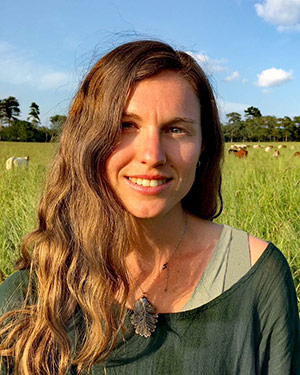
Bryony Sands
University of Vermont Extension
Pest Expertise: dung beetles, grazed pasture beneficials, insects, livestock pests and parasites, nematodes, parasites, pest flies, ticks
Crops and Commodities: dairy, livestock
IPM Tools: beneficials, biological control, cultural control, decision support aids, diagnostic tool, pesticides
Bio: Bryony's research integrates agroecology, entomology and veterinary parasitology and broadly seeks to understand the impacts of agricultural activities on insect biodiversity, ecosystem function and pest and parasite populations in livestock systems. Her work has focused on the environmental impacts of agricultural parasiticides on functionally important insect decomposer communities, and consideration of novel, environmentally sensitive approaches to pest and parasite control.
Website: www.uvm.edu/extension/nwcrops/profiles/bryony-sands
Email: bosands@uvm.edu
Collaboration Interest: Bryony is interested in collaborating on projects relating to IPM in grazed pasture ecosystems including beneficial invertebrates, particularly dung beetles and soil health. She would also like to collaborate on projects relating to livestock pests and parasites including ticks, flies, mites, lice, and gastrointestinal parasites.
Alicyn Smart
University of Maine
Pest Expertise: bacterial diseases, blight (early), fungus, plant diseases (viruses, phytoplasmas, oomycetes, etc.), septoria leaf spot
Crops and Commodities: apples, beans, blueberries, brassicas, butternut squash, cherries, cover crops, cucurbits, eggplant, flowers, fruit, grapes, greenhouse, onions, ornamentals, peaches, pears, peppers, potatoes, raspberries, roses, small fruit, small grain, spinach, strawberries, stone fruit, sunflowers, tomatoes, tree fruit, turf, vegetables
IPM Tools: biological control, cultural control, decision support aids, diagnostic tool, education, exclusion/avoidance, forecasting, host resistance, mechanical control, pesticides
Bio: Alicyn directs the University of Maine Plant Disease Diagnostic Lab, which serves as the Regional Center for the Northeast Plant Diagnostic Network (NPDN), and is the Deputy Executive Director of the National Plant Diagnostic Network. The Plant Disease Diagnostic Lab identifies diseases present on samples submitted and provides a management plan in the form of a diagnostic report to homeowners, farmers, the lawn care industry, and nurseries to Maine residents and beyond. Through this service, Alicyn identifies areas where research in plant pathology is needed. Research is carried out to enhance the success of Maine agricultural industries by reducing losses to plant diseases and minimizing disease management costs by providing early and accurate disease identification.
Website: extension.umaine.edu/ipm/plant-disease/
Email: alicyn.smart@maine.edu
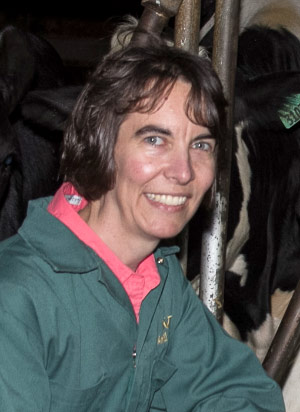
Julie Smith
University of Vermont
Crops and Commodities: dairy, goat, livestock, sheep
IPM Tools: decision support aids, education
Bio: Since 2002 I have held a variety of extension, research, and teaching positions in the Department of Animal & Veterinary Sciences. I have conducted trainings for Extension educators, livestock producers, and community members on the risks posed by a range of animal diseases, whether they already exist in the United States, exist outside of the United States, or pose a risk to both animal and human health. I emphasize the importance of awareness and prevention and the use of management practices to minimize the risk of introduction or spread of pests and diseases. I currently lead a multi-disciplinary project with multiple objectives related to investigating and influencing human decision-making regarding protecting livestock from new, emerging, or exotic pests and diseases. For more on the project, visit: agbiosecurityproject.org. The project outreach site is: www.healthyagriculture.org.
Website: www.uvm.edu/cals/asci/profiles/julie-smith-dvm-phd
Email: julie.m.smith@uvm.edu
Collaboration Interest: My interest is in agricultural biosecurity inclusive of plant and animal health. This falls under the scope of One Health or One Biosecurity, broadly considering the health of plants, animals, humans, and the environment. I am seeking others to join in brainstorming ideas and developing a proposal for a Northeast Extension/Education and Research Activity. Please be in touch if you are interested in participating in a working group.
Time Frame for Collaboration: My goal is to submit a working group proposal to the 2020 call for partnership grants.
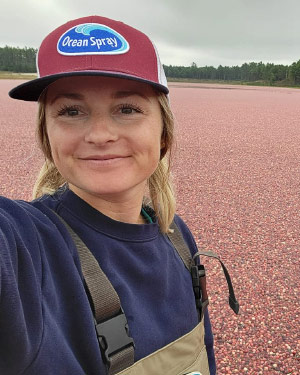
Crysta Taylor
Ocean Spray Cranberries
Pest Expertise: cranberry fruit rot, cranberry fruitworm, cranberry girdler, cranberry weevil, flea beetles, fungus, insects, lepidoptera, scale, small fruit insects, weeds & diseases, Sparganothis fruitworm, weeds, winter moth
Crops and Commodities: cranberries
IPM Tools: biological control, cultural control, decision support aids, diagnostic tool, education, exclusion/avoidance, habitat modification, host resistance, IPM priorities & guidelines, mechanical control, pesticides
Bio: I am the Massachusetts agricultural scientist for Ocean Spray Cranberries. My background is in greenhouse plant production and pH/nutrient management for container crops.
Website: www.linkedin.com/in/crysta-taylor-797a65b0/
Email: ctaylor2@oceanspray.com
Collaboration Interest: I am interested in IPM programs.
Mark VanGessel
University of Delaware
Pest Expertise: weeds, herbicide resistant weeds, small fruit insects, weeds & diseases
Crops and Commodities: beans, beans (snap), brassicas, butternut squash, corn, corn (field), corn (sweet), cover crops, cucurbits, eggplant, forage, lima beans, peppers, small fruit, small grain, soybeans, spinach, tomatoes, vegetables
IPM Tools: cultural control, education, mechanical control, pesticides
Website: extension.udel.edu/ag/weed-science/

Changlu Wang
Rutgers University
Pest Expertise: ants, bed bugs, cockroaches, insects, rodents, ticks
IPM Tools: monitoring
Bio: Dr. Changlu Wang is an Associate Extension Specialist in the Department of Entomology, Rutgers University. He received his B.S. from Beijing Forestry University (1985), MS from Chinese Academy of Forestry (1988), and PhD from West Virginia University (1998). His research interests are developing new and improved techniques and materials for urban pest management, insecticide resistance, and insect behavior. He published 6 books/book chapters, 64 peer-reviewed papers, and 23 non-peer reviewed articles, and coauthored 4 patents.
Collaboration Interest: Pest control research in apartment buildings; Developing new tools and methods for better management of urban pests (ants, cockroaches, bed bugs, termites, and others); Study the biology and ecology of urban pests; Monitor and survey of urban pest infestations.
Website: entomology.rutgers.edu/personnel/changlu-wang/
Email: changluw@rutgers.edu
Kaitlin Stack Whitney
Rochester Institute of Technology
Pest Expertise: aphids, insects, invasive terrestrial plants, weeds
Crops and Commodities: corn, corn (field), pollinators, soybeans, vegetables
IPM Tools: biological control, cultural control, education, habitat modification, IPM priorities & guidelines, monitoring, pesticides
Website: www.rit.edu/sweetlab/
Andy Wyenandt
Rutgers University
Pest Expertise: bacterial diseases, early and late blight, powdery mildew, septoria leaf spot
Crops and Commodities: basil, cucurbits, eggplant, peppers, potatoes, spinach, strawberries, tomatoes, vegetables
IPM Tools: education, host resistance, pesticides
Bio: I am the Extension Specialist in Vegetable Pathology at Rutgers University.
Email: wyenandt@njaes.rutgers.edu
